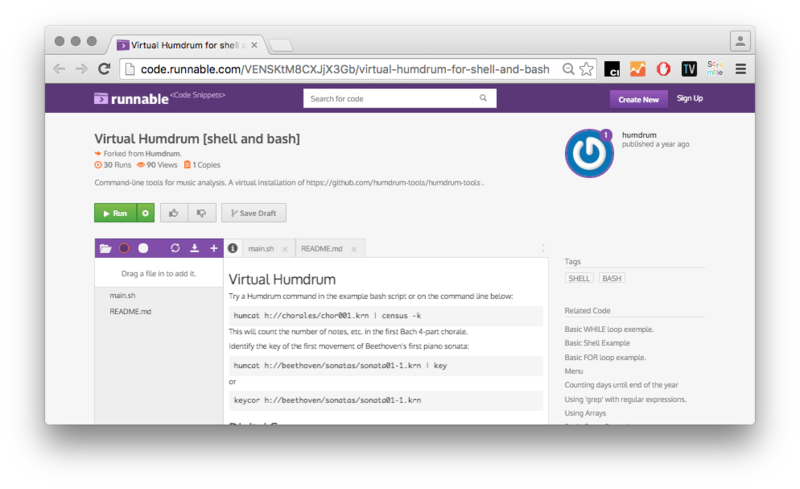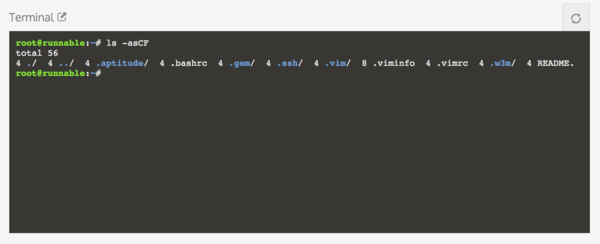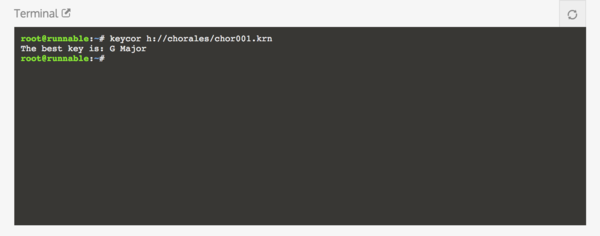Getting started with Humdrum: Difference between revisions
| (One intermediate revision by the same user not shown) | |||
| Line 28: | Line 28: | ||
[[Image:VirtualHumdrumConsoleKeyCor.png|600px|center|Screenshot of Virtual Humdrum page console running keycorr]] | [[Image:VirtualHumdrumConsoleKeyCor.png|600px|center|Screenshot of Virtual Humdrum page console running keycorr]] | ||
== Humdrum Tools from Github == | |||
Humdrum Tools can be installed from Github: https://github.com/humdrum-tools/humdrum-tools | |||
Follow the directions on the page to install. | |||
Latest revision as of 23:22, 11 March 2016
Humdrum tools can be used in two main ways: (1) on a virtual unix computer, or (2) downloaded onto your computer and run in a unix shell.
Virtual Humdrum
A quick way to access Humdrum tools is to use the Virtual Humdrum installation:
http://runnable.com/VENSKtM8CXJjX3Gb/virtual-humdrum-for-shell-and-bash

At the bottom of this webpage is a unix bash shell console in which you can run unix commands as well as Humdrum tools:

You can also view the console in full-screen mode by clicking on the box with an arrow coming out of it after the word "Terminal".
Try typing a Humdrum command to see if the installation is working, such as what is the correlation analysis of the key for a Bach chorale:
keycorr h://chorales/chor001.krn
The keycorr program should reply with the result:
The best key is: G Major

Humdrum Tools from Github
Humdrum Tools can be installed from Github: https://github.com/humdrum-tools/humdrum-tools
Follow the directions on the page to install.